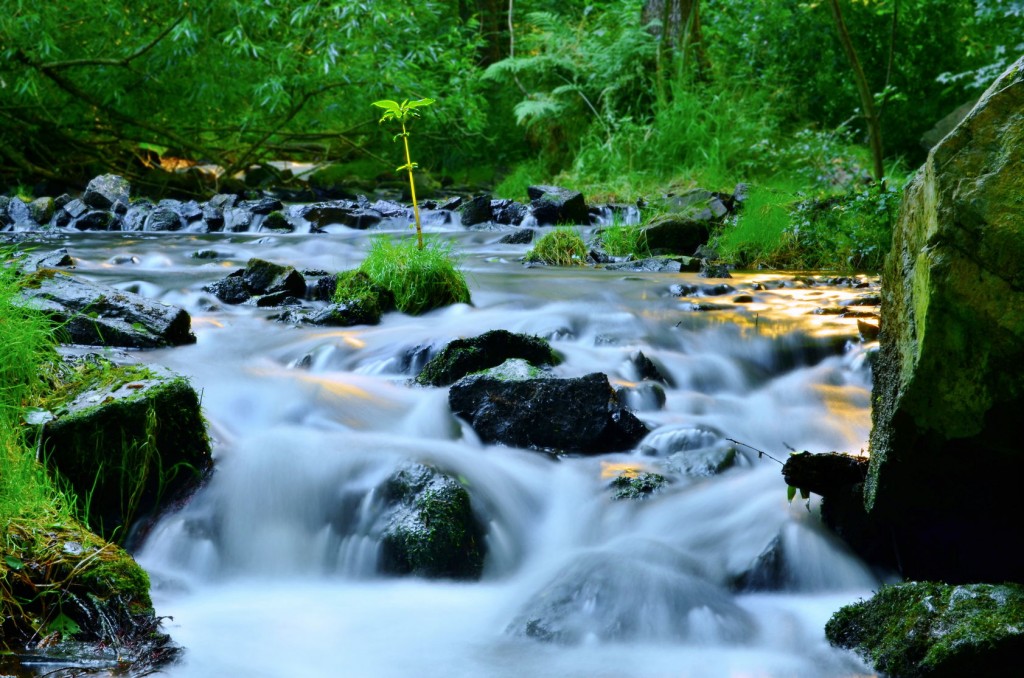Picture an army retreating. Next, think of a time when you were so overwhelmed by the pace of life that you wanted to run away. The connotation of those images is one of defeat—cowardly running away.
But the principle of the retreat is a very strategic military maneuver when designed to regroup to come back more effectively.
I remember a time when my circle of friends considered the word “retreat” as only a sign of weakness. They wouldn’t dare use the word—instead, they would speak of an “advance”. Sadly misguided.
The Power Of The Retreat
The discipline of a personal retreat is an ancient one. The Bible records how it was a regular habit of Jesus. He would often break away from the masses for a concentrated time of prayer—before a busy day; after a very taxing day; in the middle of the day when He was under tremendous pressure or opposition.
- Mark 1:35 “And in the early morning, while it was still dark, He arose and went out and departed to a lonely place, and was praying there.”
- Matthew 14:23 “After He had sent the crowds away, He went up on the mountain by Himself to pray; and when it was evening, He was there alone.”
- Mark 6:46 “And after bidding them farewell, He departed to the mountain to pray.”
- Luke 5:16 “But Jesus Himself would often slip away to the wilderness and pray.”
In those times, He would retreat. If He felt it necessary, so should we. I’m not talking about the exceptional times of a multi-day getaway. Those extended retreats are great yet few and far between. We need to tap into the principle of the retreat on a regular basis—that’s where the power is.
The power of the retreat is in solitude.
Successful leaders have always been known as people who understood the importance of solitude. They know how to handle themselves in solitude. How successful you are in solitude determines your success publicly.
If anyone needs quietness and solitude, it’s our generation. And especially parents of young children! Our lives are so fast-paced, so noisy, we feel almost violated by an information overload.
It’s not about becoming a recluse or a hermit—simply being smart enough to get away from time to time.
The Principle Of The Retreat
The principle of the retreat is to slip away often to pray.
To meditate. To reflect. To withdraw from the demands and distractions of everyday life and reenergize through prayer.
It’s not just getting away from the hubbub; it’s getting away to pray. Consider the Bible excerpts above. Jesus didn’t just ditch everybody to veg out. It was to connect with God through revitalizing conversation.
The purpose of this kind of solitary retreat is spiritual reenergizing.
Periods of rest are important. We all need sleep on a daily basis, and sometimes even need a extra nap to compensate. Yet, a lot of the “tired” we feel comes not from physical exhaustion but from mental and emotional exhaustion. Sleep only helps so much. Sometimes we don’t need more sleep—we need spiritual recharging.
Solitude also means more than just being alone. We need quiet.
Turn off the TV. Get rid of all distractions. (This is the reason we teach kids to fold hands and close eyes when praying.) This may be uncomfortable at first. You may have to force yourself to sit still.
In that quiet place, begin a conversation with God. Open up and confide. Ask for help—for guidance. Then listen for His still, small voice inside.
The Practicalities Of The Retreat
You will make time for those things that are priority to you. Young parents and busy professionals may have to rise a bit earlier. You will also have to learn to say “no” to those things that claim to be important and yet are simply disguised in urgency.
If you burn out from exhaustion or have a nervous breakdown, then who are you going to be any good for?
I became a strategic retreater years ago as a busy pastor of a small yet growing church, husband, and father of five kids still at home. Daily. Weekly. Monthly. Annually. All were important yet my sustaining power came from my daily, early morning retreats.
“What time is best?” I argue for early morning. Late at night may work, but the examples of Jesus and other great leaders through history generally point to the beginning of the day. After all, the best time to tune the instrument is before the performance.
Besides, you can’t put everyone and everything on hold whenever you want. So, look for the times when the rest of the world is quiet.
“Where is the best place?” The Bible refers to a lonely place; a secluded place; a desert place. These describe a place free from everyday distractions – maybe even devoid of common conveniences so others won’t even want to bother you! It allows you to think deeply and concentrate on conversation with God.
Wherever you choose, it should be a place where you can be alone. That might be your office, your bedroom. It could be on the back of your property or nearby park.
Retreat!
Everyone faces times of extraordinary demands upon us. We need to learn to retreat so we can return energized and more effective.
To retreat doesn’t mean extended times on the backside of the wilderness. A regular time everyday, preferably at the beginning of the day, will make sure you get some solitary time each day. And you may need some special times for when you’re exceptionally busy or in times of seasonal imbalance.
None of this will take place, though, without making it a priority. Look for a time on a daily basis when you can be undisturbed. If Jesus needed to, how much more do we?
Question: What is your preferred time and place for regular retreating to recharge? Share your answer in the comments below.
